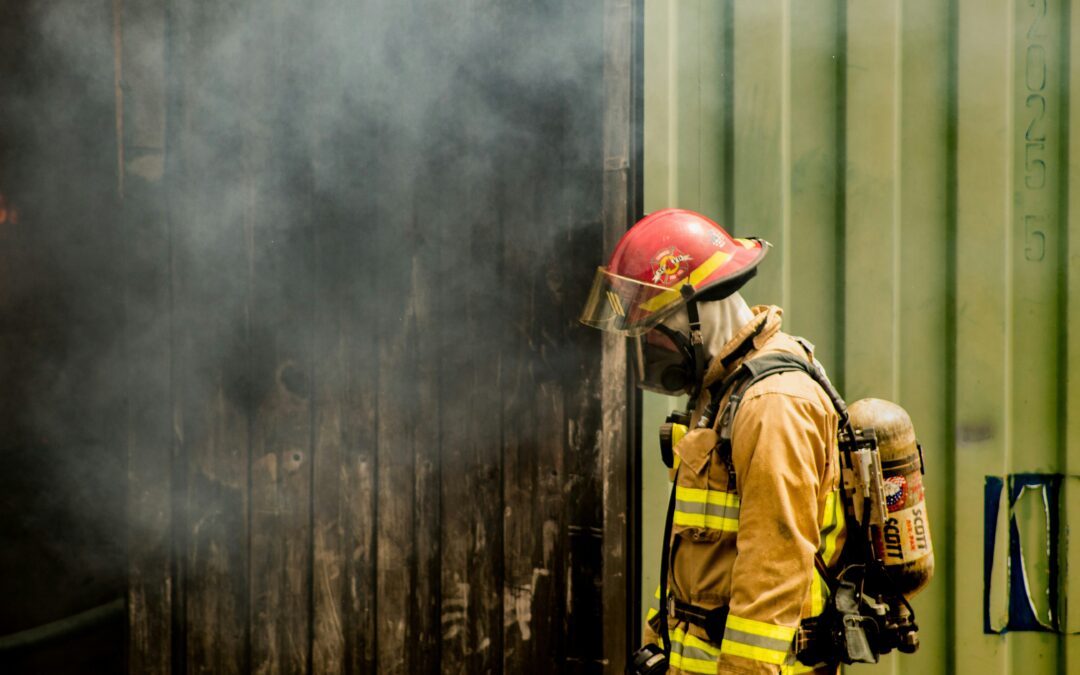Carrying the Weight No One Sees
When the shift ends and the uniform comes off, the weight of what you’ve seen doesn’t just disappear. Police officers, firefighters, paramedics, nurses, military personnel, and other frontline workers face experiences most people can’t imagine—accidents, violence, tragedy, and loss.
First responders are the helpers in our darkest moments, yet many silently carry trauma, stress, and exhaustion. Research shows first responders are at significantly higher risk for post-traumatic stress disorder (PTSD), depression, and suicidal thoughts compared to the general population (Carleton et al., 2019).
It’s not a sign of weakness to feel the impact of your work—it’s human. This post explores why first responders are at greater risk, the warning signs to look out for, and evidence-based tools to support your mental health.
Why First Responders Are at Higher Risk of Suicide
Daily Exposure to Trauma
Responding to life-threatening emergencies, witnessing loss, and absorbing the pain of others takes a cumulative toll on the nervous system and mental health. Some first responders may go for years without noticing the buildup, while others may begin noticing small changes earlier on. Sleep disruptions, irritability, numbness or disconnect from family and friends are common signs of occupational stress or burnout.
The Culture of “Toughness”
In many emergency professions, vulnerability is seen as a weakness. This stigma discourages people from asking for the help they need and deserve.
Sleep Disruption and Shift Work
Irregular schedules interfere with the body’s natural rhythms, increasing risk for depression, anxiety, and burnout (Vyas et al., 2012).
Feeling Isolated
First responders often feel that family or friends can’t understand what they’ve seen or experienced. Isolation is a strong predictor of suicidal thoughts (Joiner, 2005).
Recognizing Warning Signs in Yourself or a Colleague
Catching warning signs early can save lives. If you notice these in yourself or a peer, it may be time to reach out:
- Emotional numbness or withdrawal
- Changes in sleep, appetite, or energy
- Increased alcohol or substance use
- Irritability, anger, or hopelessness
- Talking about death or feeling like a burden
- Risk-taking or reckless behavior
Remember: talking about suicide does not plant the idea. Asking directly can be a life-saving intervention (Dazzi et al., 2014).
Suicide Prevention Strategies for First Responders
- Normalize Mental Health Conversations
Breaking silence starts with honest talk. Asking, “How are you really doing?” can create a safe opening. Departments that encourage mental health check-ins foster resilience.
- Lean Into Peer Support
Peer support programs like Critical Incident Stress Management (CISM) or peer-led debriefs create judgment-free spaces to process difficult calls (Everly & Mitchell, 1999).
- Consider Trauma-Focused Therapy
Evidence-based treatment such as EMDR (Eye Movement Desensitization and Reprocessing) has been proven effective for trauma-related symptoms (Watkins et al., 2018). EMDR helps process memories without reliving them, reducing the intensity of flashbacks, nightmares, and hypervigilance. Connecting with a therapist trained in EMDR can be helpful at any stage of a first responder’s career. However, early connection with an EMDR-trained therapist gives new first responders valuable tools and a supportive relationship to process trauma as it happens—helping prevent PTSD and burnout before they take root.
- Prioritize Physical and Emotional Health
- Sleep: Aim for consistent rest whenever possible.
- Exercise: Movement helps regulate mood and stress hormones.
- Connection: Talk to trusted colleagues, friends, or family. Isolation increases risk.
- Mindfulness tools: Simple breathing, grounding, or guided relaxation can reduce stress in the moment.
- Advocate for Change in the System
Departments and organizations play a critical role. Policies that ensure confidentiality, reduce stigma, and provide accessible counseling are lifesaving. Leaders who model openness about mental health create safer environments for everyone.
Supporting a Colleague Who May Be Struggling
If you suspect a fellow first responder is struggling, here’s how you can help:
- Start with compassion. Say: “I’ve noticed you don’t seem yourself. I care about you—want to talk?”
- Listen without judgment. Let them share without rushing to fix.
- Encourage professional help. Offer to help find resources or accompany them.
- Stay connected. Follow up with a text, call, or coffee. Small gestures remind them they’re not alone.
Caring for Yourself While Helping Others
Supporting someone else through suicidal thoughts can be heavy. It’s important to care for your own mental health, too:
- Set emotional boundaries—you need to put your oxygen mask on before helping others with theirs.
- Seek therapy or supervision if needed.
- Use grounding strategies after stressful conversations.
- Remember: you don’t have to carry this alone.
You Are Not Alone
First responders are trained to protect and save others, but your life is equally worth protecting. Asking for help doesn’t mean you’re not strong—it means you’re human. Healing is possible, and no one should face the burden of trauma alone.
If you are experiencing suicidal thoughts, please know support is available. In Canada, you can dial or text 988 for immediate suicide crisis help.
If this post resonates with you, reach out to one of our trauma-informed therapists. We offer confidential, supportive care for first responders and high-stress professionals. Share this article with a colleague—you never know whose life it could touch.
Reviewed and edited by Hannah Robinson RP (Registered Psychotherapist) at Finding Solutions Together.



Recent Comments